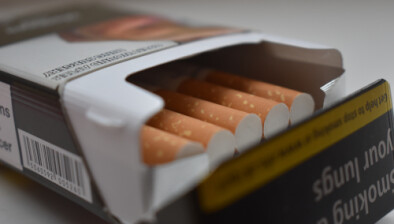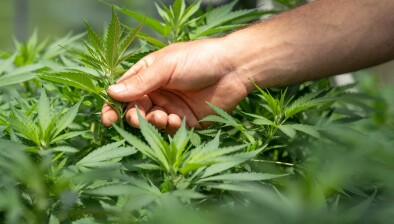Court of Appeal: Appeal concerning Irish prohibition on CBD products containing trace amounts of THC dismissed

The Court of Appeal has dismissed an appeal against a High Court judgment which found that the State’s prohibition on CBD products containing no more than 0.20 per cent THC did not offend the principle of the free movement of goods in the EU.

About this case:
- Citation:[2025] IECA 216
- Judgment:
- Court:Court of Appeal
- Judge:Mr Justice Anthony Collins
Delivering judgment for the Court of Appeal, Mr Justice Anthony Collins appeared convinced that the appellant’s case had changed from that argued before the High Court and found inter alia that she faced a “fundamental obstacle” insofar as she contended that she was entitled to market products containing CBD derived from plants with a THC content not greater than 0.20 per cent, where she had adduced no evidence of the THC content of the cannabis plants from which her CBD oils had been extracted.
Background
The appellant was the owner of a shop located in the State, which had an online presence which she claimed to permit her to advertise and to sell her products to customers located throughout the European Union.
The shop advertised for sale a number of products containing cannabidiol (CBD), a non-psychoactive extract of the cannabis plant.
Certificates of analysis provided by EirLab demonstrated that Hempture-branded CBD oils purchased by the appellant’s shop could contain between 3 – 25 per cent CBD. The oils were also found to contain a proportion of tetrahydrocannabinol (THC), a psychoactive component of the cannabis plant and a controlled substance under the Misuse of Drugs Act 1977, which did not exceed 0.20 per cent.
In 2021, the appellant’s shop and her home were searched by gardaí. The items seized in the course of the search included CBD oils. The appellant was charged with a number of offences under the 1977 Act, with her hearing being adjourned from time to time.
By way of judicial review, the appellant sought 12 reliefs including a declaration that the prohibition by the State of products contain traces of THC and derivatives thereof breached inter alia the principle as to the free movement of goods within the EU.
The gravamen of the appellant’s case before the High Court was that a CBD-based product containing trace elements of THC should not be regarded as a controlled substance provided that its proportion of THC was below 0.20 per cent.
The appellant relied upon the case of Case C-663/18 B.S. & C.A. (Kanavape) in support of the proposition that a preparation containing CBD and traces of THC not greater than 0.20 per cent was entitled to the protection that Articles 34 and 35 of the Treaty of the Functioning of the European Union (TFEU) affords to the trade and marketing of goods within the EU.
The High Court having dismissed her application, the appellant appealed both that judgment and a further judgment which awarded costs against her.
The Court of Appeal
At the outset, the Court of Appeal recognised that the appellant’s appeal would be determined by the court’s interpretation of Kanavape.
Noting that two issues arose from the facts, Mr Justice Collins explained that the first to fifth-named respondents did not contest the appellant’s reliance upon Articles 34 and 35 TFEU, and that there was no evidence before the High Court as to the percentage of THC contained in the cannabis plants from which the CBD in the oils had been extracted, as opposed to the percentage of THC present in the oils.
The judge explained that the absence of evidence as to the THC content of the plants supported the first to fifth-named respondent’s allegations that the centre of the appellant’s case as presented to the Court of Appeal, being that the prohibition on the sale of products containing CBD extracted from plants containing less than 0.2 per cent THC is contrary to EU law, had shifted from that which was argued before the High Court.
Turning to the Kanavape judgment, the Court of Appeal found that the Court of Justice had followed the Advocate General’s Opinion on whether Regulations 1307/2013 and 1308/2013 and Articles 34 and 36 TFEU must be interpreted as precluding national legislation prohibiting the marketing of CBD lawfully produced in another Member State when extracted from the cannabis plant in its entirety and not solely from its fibre and seeds, by ruling that Articles 34 and 36 preclude national law prohibiting the marketing of CBD lawfully produced in another Member State when it is extracted from the cannabis plant in its entirety and not solely from its fibre and seeds, unless that legislation is appropriate to attain the objective of protecting public health and does not go beyond what is necessary for that purpose.
Affirming the finding whereby the High Court dismissed the proposition that the Kanavape judgment had ruled upon the THC content of a product, as distinct from the THC content of the plants from which the product was extracted, the Court of Appeal was satisfied that Kanavape did not support the proposition that a preparation containing CBD and THC not greater than 0.20 per cent was entitled to the benefit of Articles 34 and 36 TFEU, where Kanavape concerned provisions of French law that prohibited the sale and marketing of compounds extracted from parts of cannabis plants other than the seeds and fibre, and where the CBD in the Kanavape products had been extracted from entire cannabis plants.
Declining to make a reference to the Court of Justice, the court noted that even if the Court of Appeal was to be persuaded otherwise, the appellant faced a “fundamental obstacle” insofar as she contended that Kanavape conferred a prima facie entitlement upon her to market preparations containing CBD derived from plants with a THC content not greater than 0.20 per cent, where she had adduced no evidence of the THC content of the cannabis plants from which her oils had been extracted.
The Court of Appeal reasoned that even if it were to make a declaration reflecting the Court of Justice’s reply in Kanavape, the appellant had adduced nothing to show how she might possibly benefit from the grant of that relief and appeared to advance a ius tertii.
As to the costs orders under appeal, the Court of Appeal followed the approach in T.A.O. v. Minister for Justice [2021] IECA 293 as applied in Pembroke Equity Partners Ltd. v. Corrigan [2022] IECA 142, asking whether the orders were within the range of those that the High Court could have made.
Noting that the judicial review application had been advanced on narrow, technical grounds and raised neither a point of law of general public importance nor one involving an issue touching upon fundamental rights, Mr Justice Collins opined:
“The appellant’s case was weak and, in the view of the trial judge, was predicated upon a tendentious reading of Kanavape. The proceedings were launched with the objective of protecting the appellant’s business interests. The existence of other proceedings that raised similar issues could not overcome the failure to meet any of the other criteria that might justify making a nil costs order.”
The judge further highlighted that there was no evidence on affidavit before the High Court which indicated that the appellant would suffer financial hardship as a consequence of a costs order being made against her and that, in any event, she would have been fixed with the costs of the DPP as she had abandoned proceedings against her on the day of the hearing.
Conclusion
Accordingly, the Court of Appeal dismissed the appeal and affirmed both judgments of the High Court.
Lynch v The Minister for Health & Ors [2025] IECA 216










